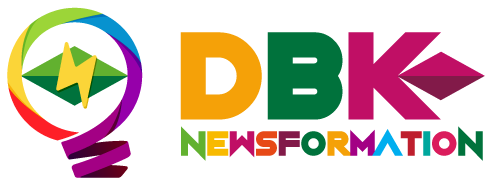Focus & Stay Sharp

We live in a busy loop. We juggle our lives between family, work, health, and relationships. We strive to keep everyone happy by doing a lot, but the fact remains that we rarely get things done. It’s like treading water where you try to tick off a list of tasks from your to-do list. If you think about it, the actual issue here is not time but our focus and energy.
You eat, sleep, wake, and repeat almost 90% of similar tasks every day. But the harsh truth is that it doesn’t lead you anywhere productive. So one remains distracted, kicks the can down the road, and starts procrastinating.
If you lack focus or don’t have sufficient energy, then no amount of time would be sufficient for you. In fact, according to a Harvard study, we spend about 47% wandering our mind.[1] Without proper focus and energy, you will never learn to spend time effectively.
If you want to achieve more with less time and energy, use this go-to guide to sharpen your focus and concentration today.

What Is Focus and How Does It Work?
We may define focus as the ability to direct our attention towards one task in an all-indulgent manner, concentrating on the aspects related to or the results.
The majority of people consider focus to measure how intensely you can concentrate on something. This is an aspect of it, but it isn’t the whole picture of what the focus is.
Focus is a key pillar in life, as it is the driving force that defines a person’s capacity.
To focus, some people require complete silence and a clutter-free workspace. Some need music or a loud TV, while others need personal mementos, photos of loved ones, or art that has personal significance on their desks to get in the right mindset.
There is no one-size-fits-all approach to creating a productive work environment. You must figure out what works best for you and create that space, even if you have to spend some money and effort.
If you want to avoid having wrong concepts enter your mind, you need a “braking mechanism.” This function is assumed to be carried out by the ventrolateral prefrontal cortex (VLPFC) [2], located right behind your temples.
So, what is focus?
Focus = Productivity
Productivity isn’t something that happens by chance. Focus is the heart of productivity. Getting everything you need and want to do takes forethought and planning and a steady source of drive and focus.
Productivity refers to achieving the best outcome in the shortest time possible. It’s not about how many chores you complete or how neatly your desk is organized.
You can expend your energy more efficiently when you have a strong focus. It’s more than just “doing more in less time.” It’s all about “doing more, smarter, and better, regardless of time,” i.e., superior attention helps you get a decent outcome no matter how much or little time you have. That is why high achievers can harvest benefits even when time is limited.
When your focus is split between multiple things, it doesn’t concentrate on anything. You may believe that you are concentrating on numerous things simultaneously, but this is not the case. The human brain isn’t designed for it.
A majority of us have been programmed to believe that our brains are capable of multiple concentrations, although physiology contradicts this belief.
Focus = Intelligence
Intelligence is the ability to interpret and apply information in order to manipulate your surroundings. Intellectual people, on average, have a better ability to concentrate.
In reality, your capacity to concentrate is one of the most important indicators of intelligence.[3]
Whereas the ability to direct your attention and exert mental strength is called the focus. It includes what you think about or avoid thinking about, what you notice or overlook, what you believe about things, how long it takes for you to remember something, how quickly you can ingest and assimilate information, etc.
Steelcase, a workplace solutions business, surveyed more than 10,000 employees in 17 countries and discovered that the most intelligent people had the most difficulty focusing.[4] However, they compensate for it with their perseverance and the tendency to go on even if the situations are not favorable. They stretch through the 20 tabs open on their minds and browsers.
When your focus is split between multiple things, it doesn’t concentrate on anything. You may believe that you are concentrating on numerous things simultaneously, but this is not the case. The human brain isn’t designed for it.

Focus Beats Adversity
The answer to remaining persistent and resolute is mental fortitude. It reminds us of what we mentioned initially alone would not get you very far.
Only if you are focused on the outcome will you receive a better outcome. Maintaining focus in difficult times will help you find better solutions to adversities standing in your way.
Yes, mental fortitude is uncommon since it simply means that you refuse to give up on your quest for success. How many of us are willing to persevere on a difficult route without succumbing or giving up?
When we lack order at the foundation of our corporate structure, it isn’t easy to maintain the mental fortitude required to thrive. We create our impediment to success if we don’t put our important stressors first.
We can only be accountable and dependable if we first deal with our biggest stressors and then move on to the more task-oriented elements. It’s easier and more efficient to assign task-oriented details to others. This allows us to concentrate on situations that require immediate attention.
When we’re afraid of failing, it’s too easy to get caught up in the minor details that don’t matter but make us feel like we’re making progress. Do not let this happen to you. Avoiding what is necessary because it is frightening will not help you progress.







